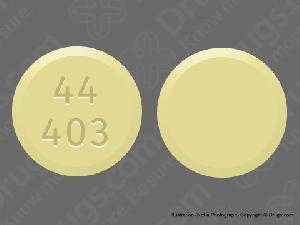Meclizine Patient Tips
Medically reviewed by Carmen Pope, BPharm. Last updated on July 26, 2024.
1. How it works
- Meclizine is used for several different conditions, such as vertigo, or nausea associated with motion sickness or radiation therapy.
- Meclizine blocks H1-histamine receptors, reducing the effects of histamine such as vasodilation (opening up of the blood vessels) and increased permeability, narrowing of the airways, and stomach cramps. Meclizine also has an anticholinergic action (this means it blocks the effect of acetylcholine, a neurotransmitter, on muscarinic receptors). Both these effects reduce stimulation of the vomiting center (one of the areas of the brain thought to control vomiting) from the vestibular system (the structure within each ear that provides the brain with sensory information about motion, equilibrium, and spatial orientation). These actions are thought to contribute to the antiemetic effect of meclizine. Meclizine may also act directly on the chemoreceptor trigger zone.
- Meclizine belongs to the class of drugs known as first-generation antihistamines. It may also be called an antiemetic.
2. Upsides
- Used to treat nausea, vomiting, and dizziness associated with motion sickness.
- May also be used to relieve symptoms of vertigo associated with diseases such as labyrinthitis and Meniere's disease.
- May occasionally be given off-label (not an FDA-approved indication) for the treatment of nausea during pregnancy or as a result of radiation therapy.
- Not as sedating as some other medicines used for motion sickness.
- Generic meclizine is available.
3. Downsides
If you are between the ages of 18 and 60, take no other medication or have no other medical conditions, side effects you are more likely to experience include:
- May cause drowsiness or dizziness and affect a person's ability to drive or operate machinery. Avoid alcohol because it may enhance these side effects.
- May also cause a dry mouth, a headache, tiredness, and rarely, blurred vision.
- Not recommended for use in children under 12 years of age.
- May not be suitable for people with asthma, glaucoma, liver or kidney disease, or prostate gland enlargement. The elderly or frail may be particularly sensitive to meclizine's effects.
- May interact with several other drugs including those that cause sedation or drugs that are also metabolized by CYP2D6 hepatic enzymes.
- Rarely, allergic-type reactions to meclizine have been reported.
Note: In general, seniors or children, people with certain medical conditions (such as liver or kidney problems, heart disease, diabetes, seizures) or people who take other medications are more at risk of developing a wider range of side effects. View complete list of side effects
4. Bottom Line
Meclizine may be used to treat vertigo or nausea and vomiting associated with motion sickness; however, it takes approximately an hour to start working and may cause drowsiness, although it is less likely than some other antihistamines to cause drowsiness.
5. Tips
- Take one hour before you travel if you are using meclizine to prevent motion sickness. The dosage of meclizine may be repeated every 24 hours for the duration of the journey.
- Do not drive or operate machinery if meclizine makes you drowsy or impairs your judgment. If meclizine does make you drowsy, try taking it the night before you travel.
- Avoid drinking alcohol while taking meclizine as this can enhance its side effects.
- Do not give meclizine to children under the age of 12.
6. Response and effectiveness
- Meclizine works in about an hour when used for motion sickness. It should be taken at least an hour before traveling for maximal benefit. The effects of meclizine persist for 8 to 24 hours
7. Interactions
Medicines that interact with meclizine may either decrease its effect, affect how long it works, increase side effects, or have less of an effect when taken with meclizine. An interaction between two medications does not always mean that you must stop taking one of the medications; however, sometimes it does. Speak to your doctor about how drug interactions should be managed.
Common medications that may interact with meclizine include:
- Alzheimer's disease medications, such as donepezil or galantamine
- anticholinergics, such as benztropine, scopolamine
- antipsychotics, such as chlorpromazine, clozapine, fluphenazine, thioridazine, or risperidone
- botulinum-toxin containing products
- buprenorphine
- medications that can induce drowsiness, such as sleeping pills, first-generation antihistamines, muscle relaxants, most antidepressants, and anti-anxiety medications
- nervous system depressants, such as barbiturates
- pain relievers, such as acetaminophen, aspirin, ibuprofen, codeine, hydrocodone, or oxycodone
- thiazide and thiazide-like diuretics.
Avoid drinking alcohol because it may increase the side effects of meclizine.
Note that this list is not all-inclusive and includes only common medications that may interact with meclizine. You should refer to the prescribing information for meclizine for a complete list of interactions.
Related/similar drugs
More about meclizine
- Check interactions
- Compare alternatives
- Pricing & coupons
- Reviews (235)
- Drug images
- Side effects
- Dosage information
- During pregnancy
- Support group
- Drug class: anticholinergic antiemetics
- Breastfeeding
Patient resources
Other brands
Antivert, Bonine, Dramamine Less Drowsy, Dramamine II, ... +3 more
Professional resources
Other brands
Related treatment guides
References
- Meclizine. Updated 03/2024. Zydus Pharmaceuticals (USA) Inc. https://www.drugs.com/pro/meclizine.html
Further information
Remember, keep this and all other medicines out of the reach of children, never share your medicines with others, and use meclizine only for the indication prescribed.
Always consult your healthcare provider to ensure the information displayed on this page applies to your personal circumstances.
Copyright 1996-2025 Drugs.com. Revision date: July 25, 2024.

